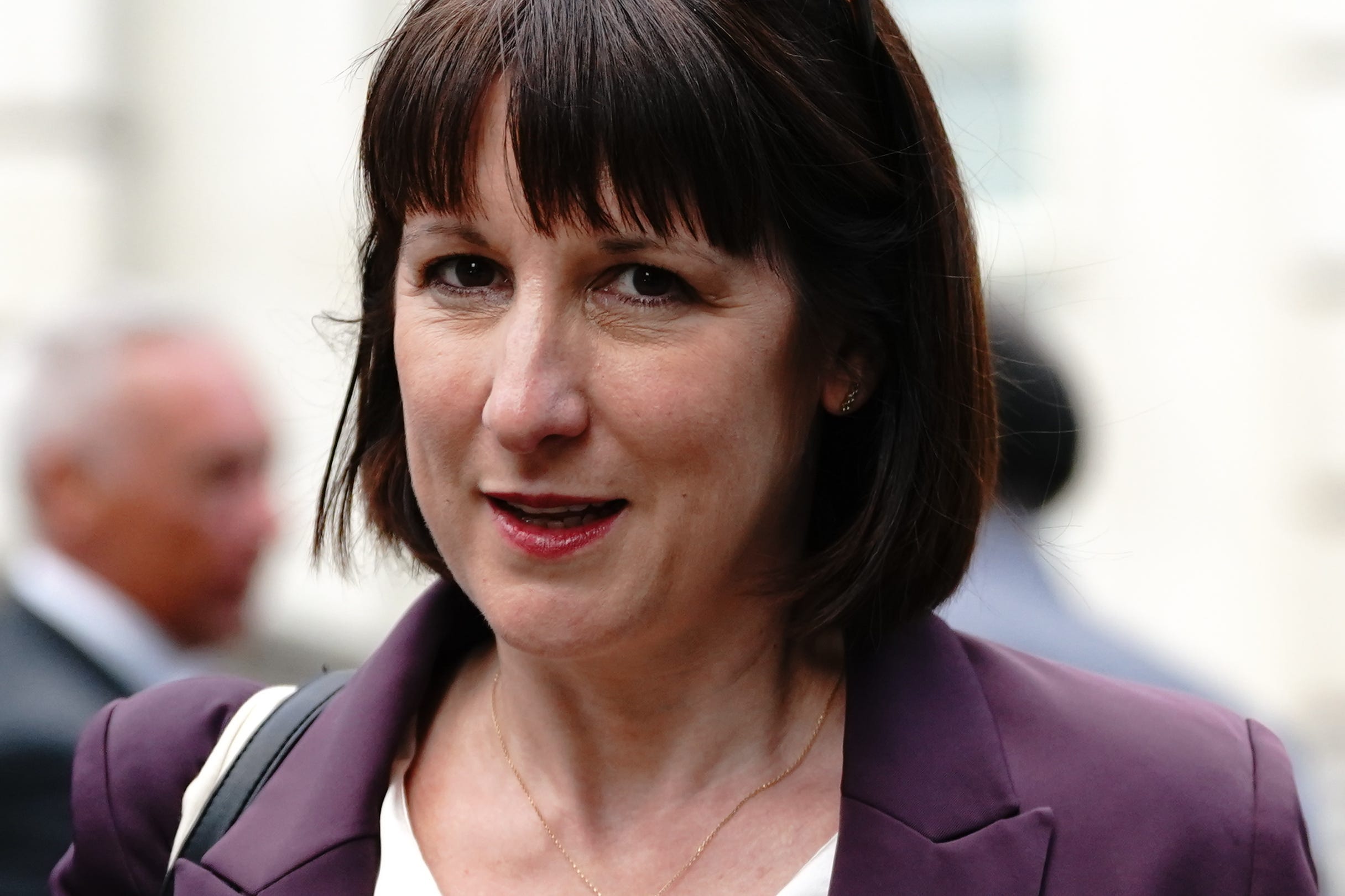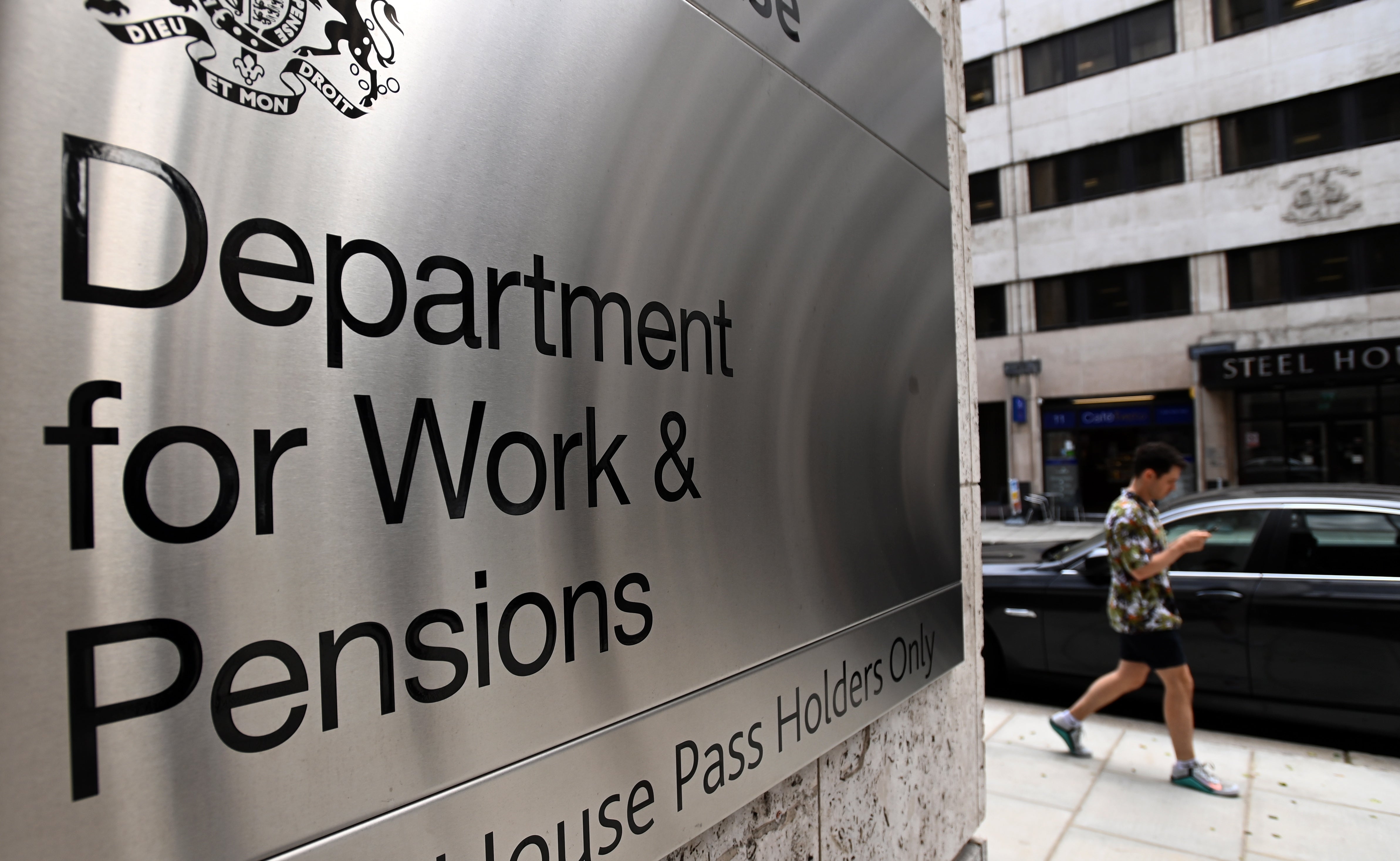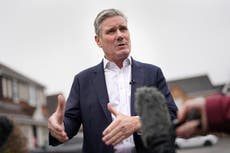Top economists pile pressure on Keir Starmer to reverse Tory cuts
Prominent academics say they are concerned Labour’s programme will not break with Tory economic orthodoxy
Your support helps us to tell the story
From reproductive rights to climate change to Big Tech, The Independent is on the ground when the story is developing. Whether it's investigating the financials of Elon Musk's pro-Trump PAC or producing our latest documentary, 'The A Word', which shines a light on the American women fighting for reproductive rights, we know how important it is to parse out the facts from the messaging.
At such a critical moment in US history, we need reporters on the ground. Your donation allows us to keep sending journalists to speak to both sides of the story.
The Independent is trusted by Americans across the entire political spectrum. And unlike many other quality news outlets, we choose not to lock Americans out of our reporting and analysis with paywalls. We believe quality journalism should be available to everyone, paid for by those who can afford it.
Your support makes all the difference.Top economists have piled pressure on Keir Starmer to break with Tory spending plans amid anxiety over Labour’s policy direction if it wins the next election.
In a letter seen by The Independent, 70 prominent academics say they are “concerned” at the party’s programme for government and warn that failing to reverse cuts would “deepen the poverty and hardship many are already facing”.
Labour last month said its fiscal rules might not allow it to reverse cuts like the two-child benefit limit or bedroom tax, between them responsible for putting hundreds of thousands of families in poverty.
Shadow chancellor Rachel Reeves also announced she would be scaling back the party’s green investment plans, saying spending limits were “non-negotiable”.
The latest warning comes after Jim O’Neill, a prominent economist who coined the term Brics (the grouping of the world economies of Brazil, Russia, India, China and South Africa) and who until recently was advising the shadow chancellor, called for “petty and arbitrary” fiscal rules to be scrapped.
In a sign of shifting feeling in the discipline, the former Goldman Sachs chief, who left the Tories to become a crossbencher in the House of Lords, wrote that parties needed to focus on increasing investment rather than trying to balance the books by restricting it.
The latest letter, authored by economists and social policy experts, urges the opposition to revisit the “legacy of the last Labour government”, which they say was “achieved by increased spending on services like Sure Start and child benefit”.
The letter’s authors include South Korean “rockstar” economist Professor Ha-Joon Chang, as well as professors Kate Pickett and Richard Wilkinson, the authors of the influential book The Spirit Level, which informed speeches by Ed Miliband when he was Labour leader.
Other signatories of the letter include Professor Brendan Burchell, president of Magdalene College at the University of Cambridge, and Professor Ruth Lister CBE, a Labour peer and emeritus professor of social policy at Loughborough University.
“We, the undersigned, are concerned that your current economic programme for government will not transform the economic orthodoxy that has made this country poorer, less cohesive and more unequal than fifteen years ago,” the letter says.
“The maintenance or extension of cuts in the current economic climate will only serve to deepen the poverty and hardship many are already facing.
“We believe it is the duty of an opposition to, where necessary, present an alternative vision for the future and when it comes to economics.”

The economists urge the opposition to move away “from an out of date, economically and socially destructive approach towards a model which improves wellbeing, works in alignment with our environment, and achieves social justice”.
They warn: “Failure to table an alternative will mean not only wasting that opportunity but many lives and futures as well.”
Asked to respond to the letter, a Labour spokesperson told The Independent the party would have to make “tough choices”.
Ms Pickett said: “We need our next government to have a clear vision to protect and promote the wellbeing of both people and planet. New economic models, based on social rights, are there to underpin an attractive and feasible future for the UK.”
The letter says reversing benefit cuts and raising spending on public services would not just help reduce poverty but also benefit the wider economy, providing “a sturdy backbone to household finances” that would in turn stimulate growth – which has been at the core of Labour’s rhetoric.
The opposition has said that day-to-day spending will be completely covered by taxes and that the party will “get debt as a share of our economy falling by the end of the next parliament”.
Koldo Casla, director of the Human Rights Centre Clinic, and co-author of the letter, said: “In the face of global warming, harmful inequalities and rampant inflation, more than an opportunity, Labour has the historic responsibility of presenting a transformational alternative grounded on social rights.”

He said the party should enshrine social rights like housing and health in law to “set a roadmap for public policy” and that these should inform its spending decisions.
Jennifer Nadel, co-director of the think tank Compassion in Politics which organised the letter, told The Independent: “Now is a unique opportunity for change. The public have seen through austerity. An election is on the horizon. Labour – and indeed every party’s – mission must be to show bravery and ambition in articulating a new and better vision for the future of the economy and our country.”
Responding to the letter, a Labour Party spokesperson said: “With Keir Starmer’s leadership, Labour has transformed into a party ready to govern for the whole country.
“The Tories crashed the economy, saddling working people with a Tory mortgage bombshell and less money in their pockets. This means an incoming Labour government would have to make tough choices.
“We will put a serious, credible and ambitious policy programme to the country, for a mission-driven Labour government that will build a better Britain. That includes growing a strong economy by strengthening workers’ rights and making work pay, underpinned by fiscal responsibility.”




Join our commenting forum
Join thought-provoking conversations, follow other Independent readers and see their replies
Comments